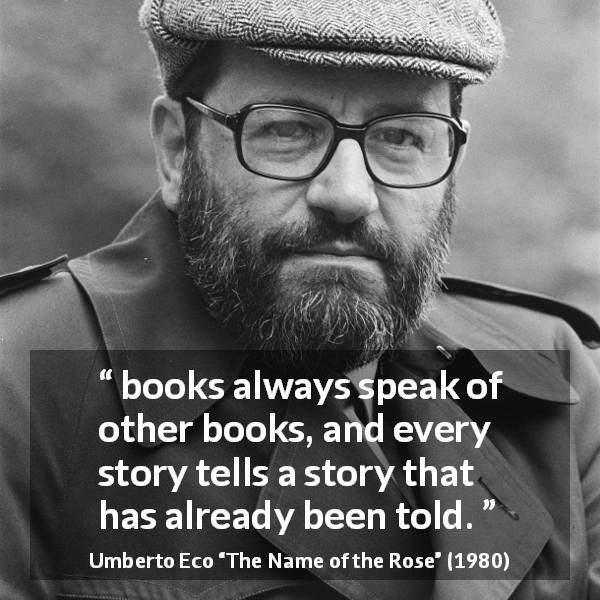

But his delicate mission is suddenly overshadowed by seven bizarre deaths that take place in seven days and nights of apocalyptic terror.īrother William turns detective, and a uniquely deft one at that. Franciscans in a wealthy Italian abbey are suspected of heresy, and Brother William of Baskerville arrives to investigate. Eco was a staunch Silvio Berlusconi critic.The international bestseller! A masterful gothic thriller set against the turbulence of medieval Italy.

They include “Foucault’s Pendulum,” considered the prototype to Dan Brown’s “The Da Vinci Code,” “Baudolino,” which mixes history and fantasy and is set during the 12th century sack of Constantinople, and his 2015 final novel “Numero Zero,” a satire on contemporary Italian tabloid media considered to have an anti-Berlusconi sub-text. No other movie adaptations were made of Eco’s subsequent six novels, even though most of them sold widely, while never equalling “Rose” sales.

but was received warmly in Europe where it performed well and became a cult title. Variety called it “a sorrowfully mediocre screen version of Umberto Eco’s surprise international bestselling novel.” It also spawned a board and a video game. It was a critical and box office flop in the U.S. The 1986 movie by Jean-Jacques Annaud instead drew mixed responses. The more than 500-page-long book, which devotes entire chapters to the intricacies of Christian theology, sold north of 10 million copies in some 30 languages. A Franciscan monk, played by Sean Connery in the movie, is sent to investigate the killings which turn out to be tied to heresy and a treatise by Aristotle which the murderers believe is an instrument of Satan. In 1980 Eco made the transition to fiction with “The Name of the Rose,” set in a 14th century northern Italian monastery where monks are being mysteriously murdered. He published nonfiction books, most notably a brief essay titled “Fenomenologia di Mike Bongiorno,” analysing the success of Italy’s most popular TV host. He studied medieval philosophy and literature at the University of Turin, where he lectured from 1956 to 1964, and went on to teach philosophy and semiotics at the University of Bologna, Europe’s oldest university.Įco also worked at Italian state broadcaster RAI and became a columnist, writing about pop culture and politics in L’Espresso, Italy’s top weekly magazine. Then, after World War II, he joined a Catholic youth organization and became its national leader, before veering more to the left and resigning in protest against the conservatism of Pope Pius XII. 5, 1932, in the city of Alessandria, in Italy’s northwest, Eco emerged as a star student and young writer during Fascism.


 0 kommentar(er)
0 kommentar(er)
